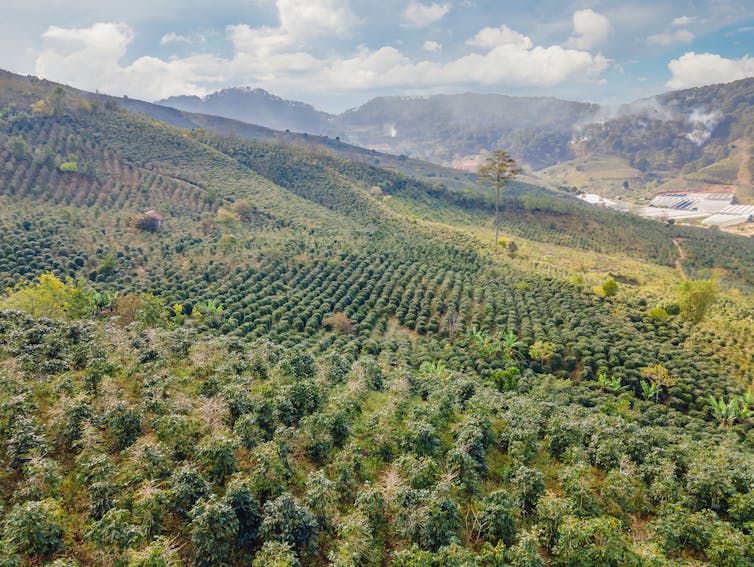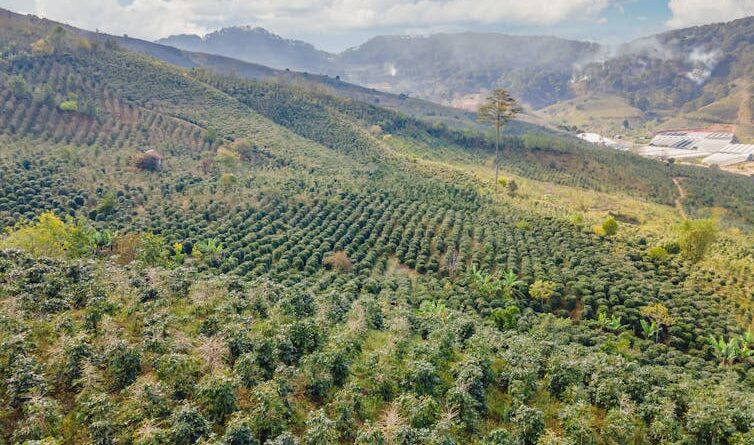Fluctuations in the price of coffee damage the mental health of farmers
Coffee is a drink that influences many of our lives. Millions of us rely on this dark liquid to start the morning, or to rise.
It has also become a very expensive practice. But before we try to pay £5 for a flat white, it’s worth considering the price paid by the coffee farmers who supply its original blend.
Because behind every latte and espresso there is the hard work and stress of coffee farmers, who face serious challenges to bring their famous product to the whole world. Harvests can be damaged by extreme weather conditions or pests and plant diseases, while unstable market prices add to other concerns, making future income uncertain.
This uncertainty is present in other crops, but especially for coffee, whose price is very unpredictable. It can rise and fall frequently due to the weather, market demand and the state of the world economy.
Coffee trees take four years to grow and produce beans, and cutting them down is expensive, so farmers cannot easily adjust the amount of coffee they produce based on price changes.
But fluctuating prices mean that farmers are uncertain of their income at harvest time, which can create incredible pressure. And our research shows how much that uncertainty affects the mental health of farmers.
Our work focused on farmers in Vietnam, a country where coffee production has increased over the past three decades. From only 1.2% of world production in 1989, Vietnam is currently the second largest producer in the world (after Brazil) producing less than 30 million 60kg bags per year. Vietnam mainly produces “robusta” coffee beans, which are grown by small farmers in the central highlands of the country.
Using data from a long-term mental health survey, we looked at how Vietnamese coffee farmers experienced symptoms of depression including sadness, hopelessness, hopelessness attention and poor sleep – and how these were associated with monthly robusta international coffee prices.
Using multivariate analysis, we found clear evidence that exposure to coffee price fluctuations increased depressive symptoms among crop farmers. They also had poorer health due to greater stress and worry about their economic future – and they drank more alcohol.

Elizaveta Galitckaia/Shutterstock
The consequences of all this uncertainty are significant. According to the World Health Organization, poor mental health is a major contributor to the global burden of disease, particularly in low-income countries where mental illness and poverty are closely linked.
Estimates suggest that approximately 80% of the global burden of depression is borne by low- and middle-income countries. But these issues are often ignored, even though they are important to solving poverty.
What can coffee drinkers do?
There are ways to deal with the mental health effects of coffee price fluctuations. Measures to promote price stability in world coffee markets and financial literacy among farmers, would be important to follow. So is working to improve mental health support within the farming community, providing tools to deal with stress and build resilience.
Coffee lovers around the world can also play their part by choosing their drink carefully. Fairtrade certification, for example, was created to help reduce the price volatility of coffee and the poverty it caused.
It guarantees a lower price for certified coffee, which covers the total cost of sustainable production and reduces the financial risks that farmers face. Fairtrade certified farmers also receive a reward for investing in projects that improve the lives of their communities.
And research suggests it’s working. A 2005 survey of coffee farmers in Nicaragua revealed that Fairtrade farmers are less concerned about the possibility of losing their farm next year compared to conventional farmers. And using data from Costa Rica, a 2022 study found that fair trade certification was effective in increasing farmers’ income.
So the next time you enjoy your morning cup of coffee, take a moment to think about the people who grew the beans that made the drink. Coffee farmers deserve our recognition – but also our help in creating fairer, more sustainable market conditions that protect their livelihoods and mental health.
#Fluctuations #price #coffee #damage #mental #health #farmers
